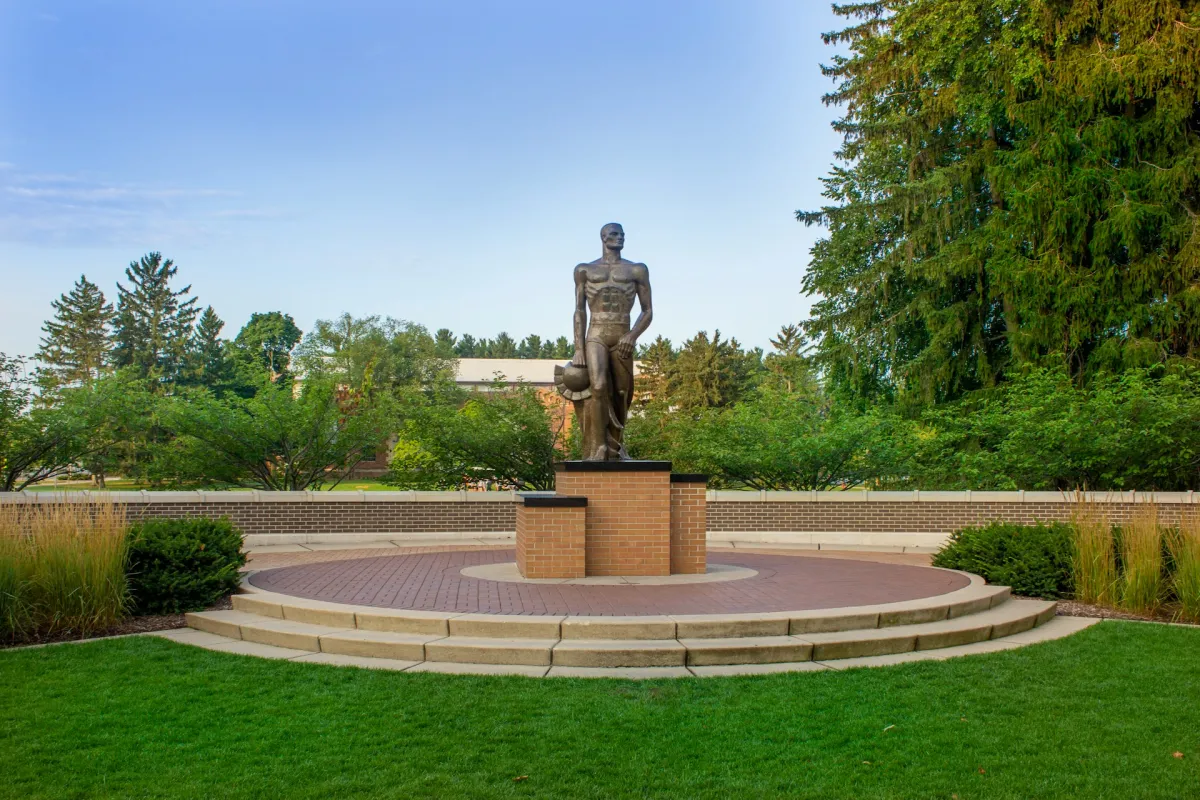IWF Abroad: Delegation attends 12th iEMSs conference in Michigan

In June 2024, a delegation of students and researchers from the Institute for Water Futures (IWF) traveled to the USA to attend the 12th International Biennial Congress on Environmental Modelling and Software (iEMSs) conference in East Lansing, Michigan. IWF PhD canditate Caroline Rosello, part of the delegation, reflects on her experiences below.
The event was held at Michigan State University, known for its world leading research, sprawling green campus, and Spartan Stadium.
Hosted by the College of Agriculture and Natural Resources, the conference explored solutions for pressing global environmental challenges through intelligent modeling.
This theme echoed throughout the diverse presentations and workshops over the week. Plenary discussions tackled frameworks for identifying appropriate tools for specific problems, multiscale and digital approaches to livestock systems, and the role of environmental science and modeling in supporting sustainable land and natural resource use, particularly to support cultural value and Indigenous communities.
IWF representatives contributed significantly to the conference’s goal of overcoming global environmental challenges.
Professor Tony Jakeman and Dr. Danlu Guo discussed approaches to address water quality challenges during both individual sessions and a workshop. In the workshop in particular, they engaged with participants in discussions related to mechanisms to manage ten sources of uncertainty in water quality modeling and methods to better address these uncertainties. A subsequent opinion paper on future opportunities in water quality modelling is in progress.
Moyang Liu presented what will constitute the third paper for her PhD thesis. It posits that modelling practice is now at the stage where transparency in modelling decision choices is essential, but the choices need also be justified qualitatively and/or quantitatively against alternatives. She demonstrated how it can be achieved with a hydroecological model of the Narran lakes vegetation condition.
Vitor Hirata Sanches presented on an application of pathway diversity in a lake eutrophication problem, showing pathway diversity is compatible with previously established resilience metrics and captures changes in agency, a critical step in the development and evaluation of resilience of socio-ecological systems.
Caroline Rosello presented and participated in a panel of experts on modelling standards to enhance model ‘findability’, ‘accessibility’. ‘interoperability’ and ‘reusability, ultimately contributing to improving their representation of Human and Natural systems and better informing ethical decision-making processes. A subsequent white paper on laying the groundwork for developing modeling standards is in progress.
The conference was remarkable not only for the wealth of knowledge shared and the opening to new perspectives but also for fostering relationships.
Getting to know people, feeling as part of a community, re-imagining your work and practice through embracing new ideas and perspective is a fantastic feeling and driver for better and more inclusive practices.
All in all, iEMSs 2024 was an incredible and joyful adventure that caters well for students and gives them opportunities to link with established interdisciplinary researchers from around the world. I encourage students from various disciplines, like the social sciences, ecology, humanities, economy, to participate in such friendly and enriching events.
